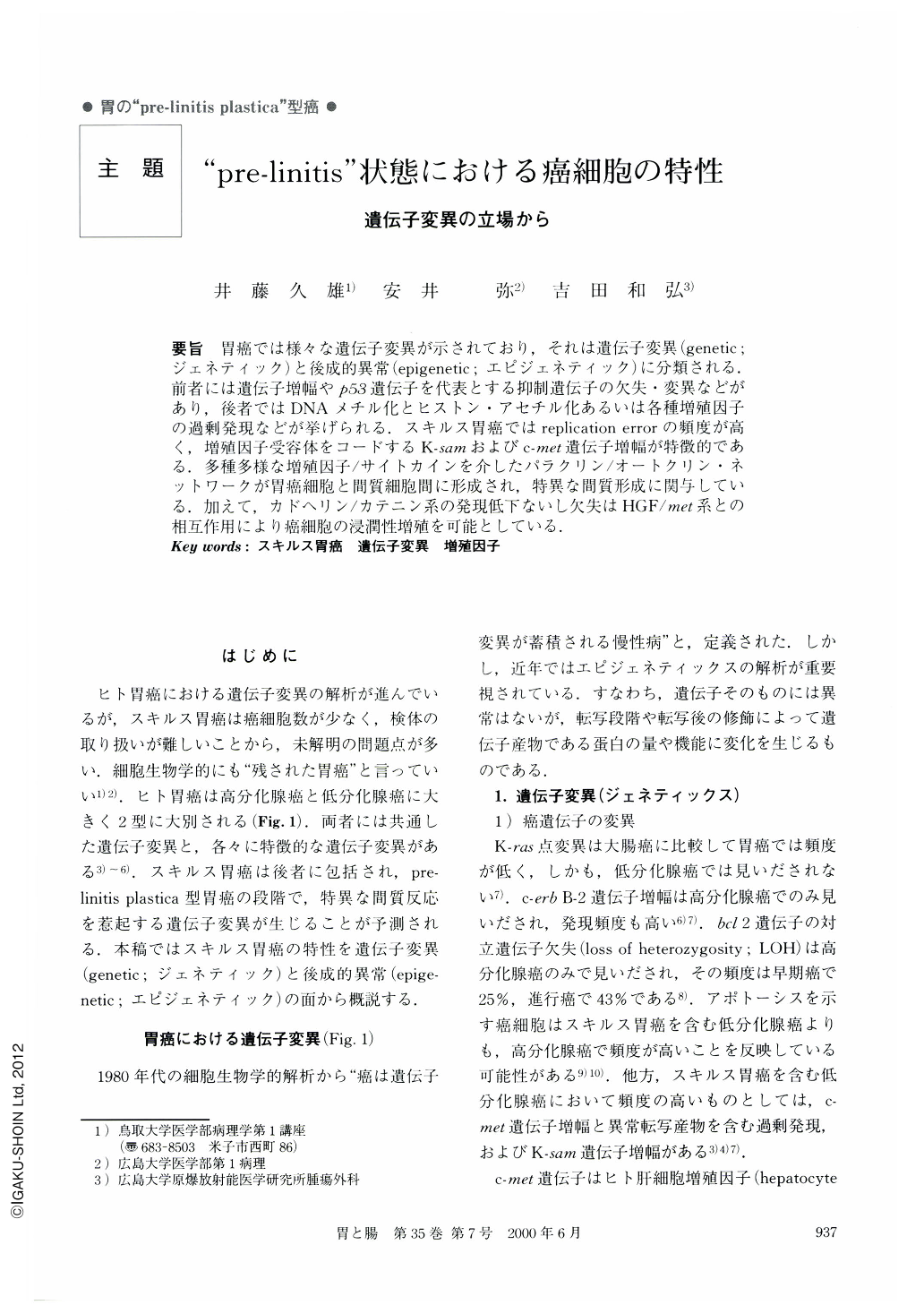Japanese
English
- 有料閲覧
- Abstract 文献概要
- 1ページ目 Look Inside
- サイト内被引用 Cited by
要旨 胃癌では様々な遺伝子変異が示されており,それは遺伝子変異(genetic;ジェネティック)と後成的異常(epigenetic;エピジェネティック)に分類される.前者には遺伝子増幅やp53遺伝子を代表とする抑制遺伝子の欠失・変異などがあり,後者ではDNAメチル化とヒストン・アセチル化あるいは各種増殖因子の過剰発現などが挙げられる.スキルス胃癌ではreplication errorの頻度が高く,増殖因子受容体をコードするK-samおよびc-met遺伝子増幅が特徴的である.多種多様な増殖因子/サイトカインを介したパラクリン/オートクリン・ネットワークが胃癌細胞と間質細胞間に形成され,特異な間質形成に関与している.加えて,カドヘリン/カテニン系の発現低下ないし欠失はHGF/met系との相互作用により癌細胞の浸潤性増殖を可能としている.
Stomach cancer shows a variety of genetic and epigenetic alterations. The former includes amplification of oncogenes and deletion or aberration of tumor suppressor genes, such as p53 gene. The latter (epigenetic changes) are shown as DNA methylation and histone acetylation, as well as overexpression of various growth factors. Scirrhous gastric carcinoma is characterized by a higher frequency of the replication error, and amplification of c-met and K-sam genes, both encoding growth factor receptors. Moreover, stomach cancer cells express a broad spectrum of growth factors and cytokines that not only serve the autocrine or paracrine growth of tumor cells, but also organize the complex networks between tumor cells and stromal cells. Loss or abnormal expression of cadherin or catenin, combined with expression of HGF/c-met provides the capability of the characteristic infiltrative growth of tumor cells.

Copyright © 2000, Igaku-Shoin Ltd. All rights reserved.


